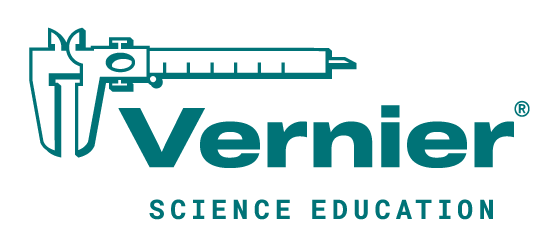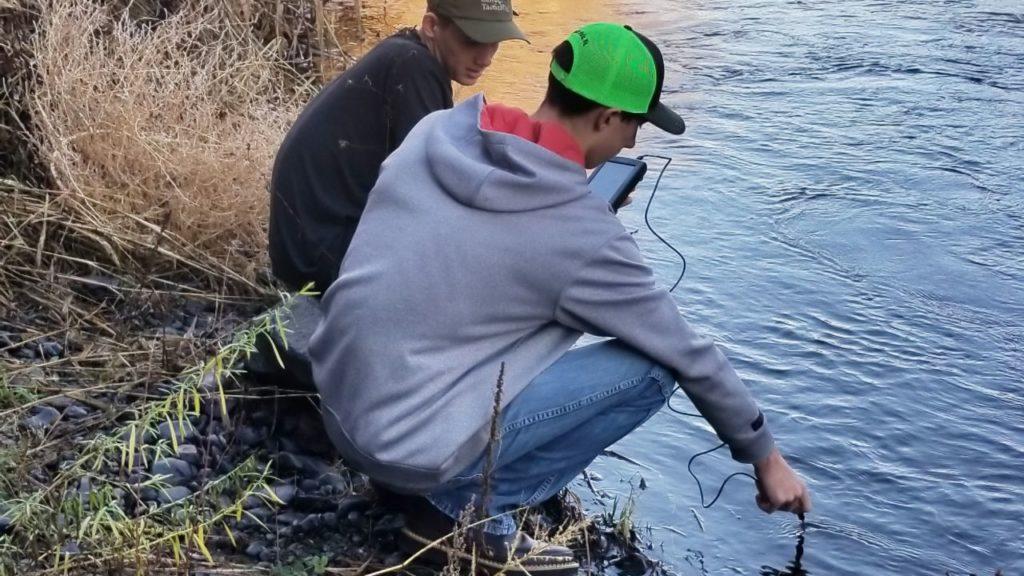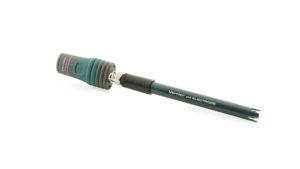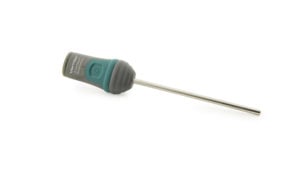Technology plays a significant role in making modern agricultural practices more efficient and profitable. Sensors monitor environmental conditions and analyze the soil; robots assist in weed control and during harvest; and drones provide aerial imagery to monitor crop growth. It is important to provide students with opportunities to use data-collection technology as they learn agricultural science in order to prepare them for the future.
Agriculture is a prominent industry in Touchet, Washington, a small town located in the heart of the state’s southeast farm country. The students who attend Touchet Junior/Senior High School are very familiar with various types of agriculture—from cattle to wheat to grass seed—since they have family who work in the industry. Many students themselves have part-time or summer jobs at agriculture-related businesses.
Ryan Maiden, the agricultural education teacher at Touchet Junior/Senior High School, wanted to ensure that his science lessons both engaged students in the learning process and were relevant to their jobs or future careers. To help with this, he implemented CASE (the Curriculum for Agricultural Science Education) and became a CASE master teacher. Today, some of the CASE courses Maiden teaches include
- Introduction to Agriculture, Food, and Natural Resources
- Principles of Agricultural Science
- Animal, Principles of Agricultural Science
- Plant, Natural Resources, and Ecology
- Animal and Plant Biotechnology
- Environmental Science Issues
Connecting the Dots Between the Lab and the Real World
The CASE curriculum is specifically designed to enhance the rigor and relevance of agriculture, food, and natural resources for students. It incorporates project- and problem-based activities that often utilize data-collection technology.
“A couple years back, I won a state grant that allowed me to acquire various technologies and curriculum resources to support my agriculture science classes,” said Maiden. “I stocked up on a pretty full complement of Vernier sensors plus a dozen LabQuest® 2 interfaces. This allowed essentially every student to have access to their own data-collection device when they were in my classroom or in the field.”
Maiden frequently uses Go Direct® pH, Go Direct Temperature, and Go Direct Conductivity, among others, with his students in various lessons that cover topics ranging from soil pH to cold storage insulation. In one of his favorite investigations, students learn about air pollution by using the Light Sensor to measure particulates in the air.
“Data-collection provides those ‘a-ha’ moments for students,” said Maiden. “Students can physically see changes in data and then visualize those changes on a graph. A regular thermometer, for example, doesn’t have the same effect.”
Preparing Students for the Future
Maiden believes the CASE courses and use of data-collection technology help deliver a comprehensive STEM education while preparing students for real-world jobs and experiences. He noted that nearly 60–70 percent of his students will likely go into some type of job in agriculture.
“Our goal is to prepare students to get jobs in agriculture,” he said. “The hands-on education we deliver helps us meet this goal by teaching them important skills and concepts they can use in the workforce.”
About the Educator
Ryan Maiden is an agriculture instructor and CASE Master Teacher at Touchet Junior/Senior High School. He has been teaching for 11 years and recently received the CASE Innovative Award for his innovative classroom and teaching approach.



